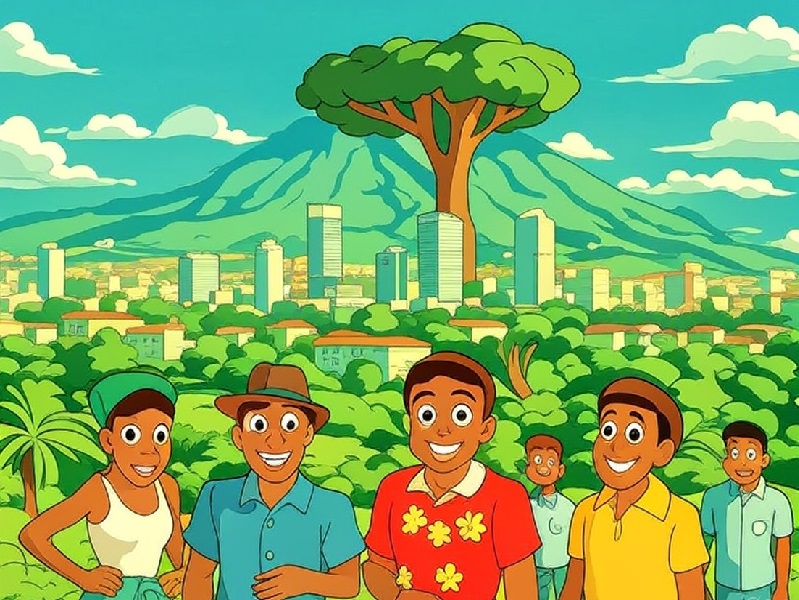Madagascar, the island nation of breathtaking biodiversity and vibrant culture, stands at a crossroads. For too long, its destiny has been shaped by external forces, rooted in a colonial past that continues to cast a long shadow. The time has come for Madagascar to reclaim its future, driven by the will and wisdom of its own people. No longer should the world judge Madagascar’s potential through the outdated lens of skin color, stereotypes, or exploitative assumptions. The colonial era is over, and the lingering grip of foreign influence—particularly from the EU and France—must be dismantled to allow Madagascar to thrive.
Madagascar is not a poor nation; it is a land rich in resources, from its unique flora and fauna to its untapped economic potential. The narrative of poverty that has plagued the island is not a reflection of its people’s capabilities but a consequence of historical exploitation and misguided leadership. The colonial mentality, which still permeates global perceptions and policies toward Madagascar, has suppressed its progress. This mentality, often cloaked in paternalistic aid or economic control, has dimmed the voices of Malagasy people for far too long. But those voices are rising, loud and clear, like an outcry against centuries of oppression.
Tourism, one of Madagascar’s greatest assets, holds the key to transforming its economy. With its unparalleled landscapes, from the baobab-lined avenues of Morondava to the pristine beaches of Nosy Be, Madagascar has the potential to become a global tourism powerhouse. The revenue from sustainable tourism alone could lift millions out of poverty, providing jobs, infrastructure, and opportunities for local communities. Unlike extractive industries that have historically enriched foreign powers while leaving Madagascar’s people behind, tourism can empower the Malagasy to take control of their economic future.
The poverty that grips parts of Madagascar is not a natural state but the residue of sins committed by past leadership and colonial powers. The exploitation of resources, the suppression of local governance, and the imposition of foreign systems have left scars. Yet, the resilience of the Malagasy people shines through. Their voices, once silenced, are now breaking free, demanding self-determination and justice. The world must listen.
To move forward, Madagascar must shed the colonial shadow entirely. This means rejecting external narratives that paint the nation as incapable or dependent. It means fostering leadership that prioritizes the Malagasy people, invests in education, and leverages the island’s natural wealth for the benefit of its citizens. It means building a future where Madagascar’s story is written by its own people, not dictated by boardrooms in Europe.
The future of Madagascar is bright, but only if it is placed firmly in the hands of its people. The time for self-determination is now. Let Madagascar rise, free from the chains of its colonial past, and show the world what its people are truly capable of achieving.
